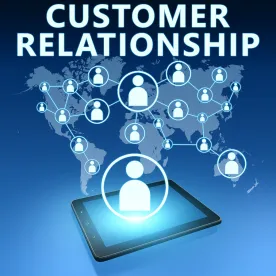For so many reasons, the most effective way for a law firm to market its services and generate new business is to focus on programs designed to enhance relationships with existing clients and referral sources. Consider the following facts that apply to most commercial law firms:
-
It takes five to seven times more time, effort and money to generate a new matter from a new client than from an existing client,
-
80-85% of next year’s business will come from the firm’s current clients, and
-
80% of the firm’s business is likely to come from the top 20% of its clients.
It does not take a marketing genius to conclude that the best thing a law firm can do to generate business tomorrow is to take exceptional care of the business it has today. For most commercial law firms, high client satisfaction levels and strong, loyal relationships between the firm and its top clients must be the heart and sole of the firm’s marketing program. This article will review three of the most powerful and successful programs that law firms are using to make sure their current clients keep coming back.
Client Exceptions: Quality Work and Good Service
Today’s consumers of legal services expect a quality work product, delivered on time, without surprises, at reasonable cost. If a law firm has ongoing challenges in any of these areas, they must be corrected without fail. The best way to determine how current clients evaluate a firm’s performance in these areas is to come right out and ask them through a client survey of some sort. It can be a mailed a questionnaire, a telephone survey, or an inperson client survey. If your firm has not yet taken the time to ask its clients to evaluate its services, it should consider doing so as soon as possible.
Beyond Expectations: Three Relationship Enhancement Programs that Work
For purposes of this article, the author assumes that the four very important areas mentioned above are being handled in a reasonably consistent manner. Therefore, the rest of this article will discuss several programs that go beyond what clients expect from their law firms. These programs are very powerful and, if properly executed, can be very instrumental in creating high levels of client satisfaction, as well as strong, loyal and lasting relationships
1) In-person Client Surveys
From personal experience and according to every experienced law firm marketing director with whom the author has discussed them, in-person client surveys (or audits) are the most effective and powerful marketing program a law firm can implement.
The amount of information learned about specific client relationships is amazing and clients genuinely appreciate the opportunity to tell the firm how it is doing and what it could do to improve its services. If you want candid feedback, you should leave the attorney(s) who work(s) on the client’s matters back at the office when you conduct the survey. But do include a senior level partner to convey to the client the importance the firm places on the meeting.
Many in-house marketing directors have had a difficult time selling this type of program to their firms, but those who have believe it to be the most effective thing they have done for their employers.
If your law firm has not undertaken an in-person client survey program, keep promoting the idea to the powers that be. Consider starting with a pilot program working with a select group of attorneys within a department or practice group who might be open to the idea.
2) Proactive Communication
Proactive communication (from the firm and its attorneys to clients, prospective clients and referral sources) can occur at the individual or institutional level. Clearly, direct communication from the individual attorney to the client is the more effective and marketing directors should always be encouraging attorneys to communicate often with clients, especially when there are no active matters.
Face-to-face interaction is best. Lunches, sporting events, firm-sponsored seminars and receptions can accomplish the goal. Active participation in associations in which clients are members is another great way to see clients on a regular basis. If your firm does not encourage and financially support these types of activities, it is overlooking one of the most cost-effective ways to generate new business. If face time is not feasible, a monthly telephone call or email message to “touch base” with clients is also a good way to maintain relationships.
At the institutional level, the firm might consider an annual event (holiday party, picnic, retreat, etc.) to thank clients. Newsletters, law alerts and other direct mail also keep the firm name in front of clients, prospective clients and referral sources. An annual “thanks for your business” letter from the managing partner to top clients is another effective communications tool for many law firms.
The point is to find and implement a variety of ongoing proactive communications programs designed to keep the firm name in front of your best sources of new business. Remember the old saying, “Out of sight, out of mind?” You need to find ways to stay in sight.
3) Client Seminars
Seminars are always at the top of the list of effective business development tools for professional services. They can be used for a wide range of purposes and conducted in a variety of ways. For the purpose of enhancing relationships with existing clients, a law firm should consider two approaches.
The first strategy is to conduct “take out” seminars for clients at their places of business. They can be offered to management, employees or both. Topics (let clients decide) should be fairly general in and, over time, you can cover a myriad of issues important to the client. For best results, keep the format for these presentations relatively interactive and informal. These seminars are easily “leveraged” because once a presentation on a particular topic is developed, chances are it will be of interest to many other clients. Furthermore, you should offer these seminars at no charge to the client.
Another seminar strategy that works well is to have an ongoing seminar series for important clients. Often called something like “Breakfast Briefing” or “CEOs Roundtable”, they can be held on a regular basis and should also be kept small, interactive and relatively informal. They can be held at the firm or at a location convenient to your target audience. Consider doing them along industry or functional lines, such as “Health Care Briefings” or “Employee Benefits Breakfast Series.”
Through both of the seminar programs described above, the firm is able to expose a variety of its attorneys and expertise to its most important clients. They offer considerable value in the eyes of the client and they cost the firm little in terms of hard dollars.
Conclusion
If your firm is not already involved in one or more of the tactics discussed in this article, why not show this article to your managing partner or partner in charge of marketing and discuss whether or not any of these programs makes sense for your firm? They have worked in many law firms around the country and, if properly introduced and executed, they can work for yours as well.




 />i
/>i

